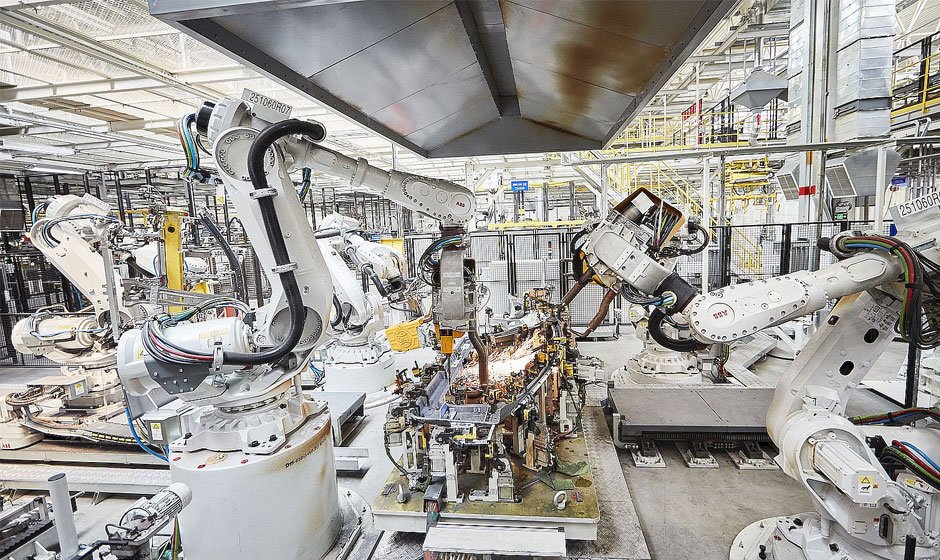The Power of Robotics in Manufacturing Industry

Robotic technology has transformed the landscape of manual labor, particularly in the manufacturing industry. For many years, robotic welding and fabrication have played a pivotal role in streamlining operations by deploying assembly-line robots for precise tasks. Today, the capabilities of automated technology have expanded significantly, allowing for safe reprogramming to seamlessly transition between a wide range of complex tasks. This flexibility enables manufacturers to enhance their overall manufacturing capabilities significantly.
While some manufacturers may have concerns about robots potentially replacing human welders, machine operators, and fabricators, many experts assert that such fears are unfounded. Both companies and workers are experiencing the advantages of a collaborative approach, combining the expertise of manufacturing professionals with robotic technology. Engage with IT Support Denver experts to implement robotic technology in your manufacturing industry efficiently.
Here are several ways in which robotics used in manufacturing industry:
Benefits of Advanced Robotics for Manufacturing Industry
-
Precision and Efficiency in Production
Robotics has revolutionized the manufacturing industry by bringing precision and efficiency to production processes. With robotic automation, manufacturers can achieve accuracy and consistency that is difficult to replicate with human labor alone. Robots can perform repetitive tasks with incredible speed and accuracy, reducing the margin of error and increasing overall productivity.
By assuming control of monotonous and repetitive tasks, robots liberate human workers to direct their attention towards the intricate and imaginative facets of manufacturing. This not only optimizes efficiency but also elevates the caliber of the end product.
-
Supply Chain Optimization and Logistics
One of the key areas where the use of robotics in manufacturing is making a significant impact is supply chain optimization and logistics. Using robots, manufacturing companies can streamline their supply chain processes, improve efficiency, and reduce costs. Robots can be programmed to handle repetitive tasks such as picking and sorting items, packing products, and loading/unloading shipments.
By automating these tasks, companies can increase productivity and accuracy while freeing human workers to focus on more complex and strategic activities. Furthermore, robots can work 24/7 without breaking or shifts, ensuring constant operation in the supply chain. If you want to secure your operations, visit Cybersecurity Denver professionals for assistance.
-
Precision and Quality Assurance
Robotics has brought about a significant change in precision and quality assurance in the manufacturing industry. With their advanced technology and programming capabilities, robots can perform repetitive tasks with incredible accuracy, ensuring consistent quality in production processes.
They can execute complex operations requiring high precision levels, such as welding, assembly, and inspection. Robotics have significantly improved product quality and reduced defects by eliminating human error and variability. Additionally, robots can work much faster than humans, leading to increased productivity and efficiency in manufacturing operations.
-
Cost Savings and Resource Optimization
Integrating robotics in manufacturing offers significant cost savings and resource optimization. Manufacturers can reduce labor costs and increase efficiency by automating repetitive tasks and streamlining production processes.
Robots can work around the clock without breaks, increasing productivity and reducing downtime. Moreover, robots can be programmed to perform tasks precisely and accurately, minimizing errors and waste. With these benefits, businesses can achieve higher output levels while using fewer resources, ultimately leading to improved profitability and competitiveness in the market.
-
Flexibility and Adaptability
Robots are super flexible and adaptive, which makes them perfect for the manufacturing industry. Robots can be programmed to perform a wide range of tasks, making them highly versatile and capable of handling different production needs. This flexibility allows manufacturers to quickly adapt to changes in demand or product specifications without extensive retooling or retraining.
Furthermore, robots can be programmed to work collaboratively with human workers, enhancing productivity and efficiency on the factory floor. With their ability to quickly switch between tasks and adjust to different work environments, robots are revolutionizing the manufacturing industry and driving advancements in automation.
-
Material Handling
Material handling processes is one of the benefits of robotics in manufacturing. With the ability to lift heavy loads, navigate complex environments, and perform repetitive tasks with precision and efficiency, robots have become invaluable assets in streamlining production lines.
By automating material handling processes, manufacturers can significantly reduce the risk of injury to human workers and increase productivity and throughput. Furthermore, robots can be programmed to work around the clock, eliminating the need for shift changes and maximizing uptime.
-
Product Assembly
Robotics has brought a revolution in the manufacturing industry, particularly in the process of product assembly. With robotic arms and automation technology, manufacturers can achieve higher levels of precision, efficiency, and speed in assembling their products. Robots can perform repetitive tasks accurately, reducing the risk of errors and improving overall quality control.
However, robots can work 24/7 without fatigue or breaks, increasing productivity and reducing production time. The integration of robotics in product assembly has improved manufacturing processes and opened up opportunities for innovation and customization in the industry.
-
Mass Customization
Mass customization is a powerful capability that robotics brings to the manufacturing industry. Traditionally, mass production has focused on producing large quantities of identical products. However, with the integration of robotics, manufacturers can now combine the efficiency of automation with the flexibility of customization.
This means individual products can be tailored to meet specific customer requirements without sacrificing speed or cost-effectiveness. By leveraging robotics in manufacturing, companies can achieve a higher degree of product personalization, resulting in increased customer satisfaction and a competitive edge in the market.
Conclusion
Integrating robotics in the manufacturing industry signifies an era of immense transformation. With exceptional precision, efficiency, and adaptability, robots are revolutionizing production processes, amplifying productivity, and fostering innovation. The power of robotics lies in automation and seamless collaboration with human workers, resulting in a harmonious synergy that propels the industry to unprecedented heights. As technology advances and robotics evolve, the future unfolds with limitless opportunities for growth, cost-effectiveness, and the establishment of safer and more agile manufacturing ecosystems.



